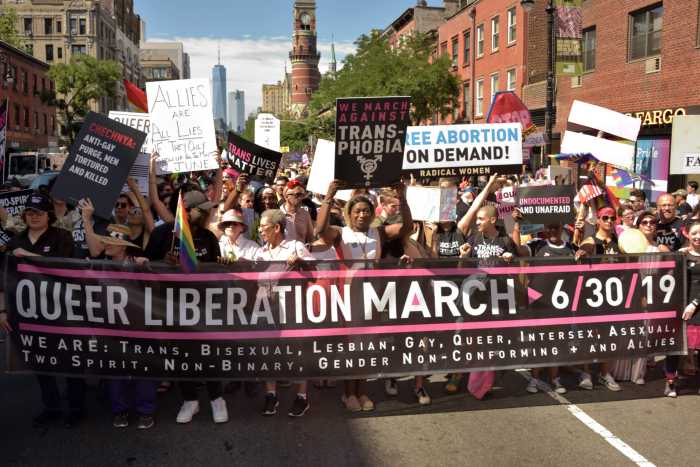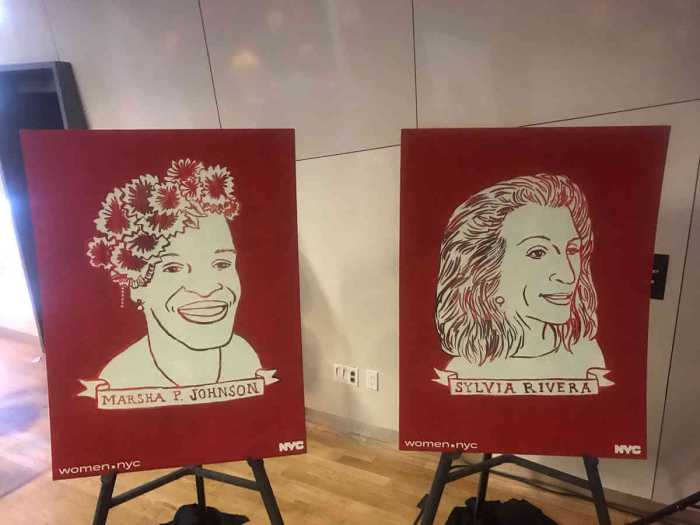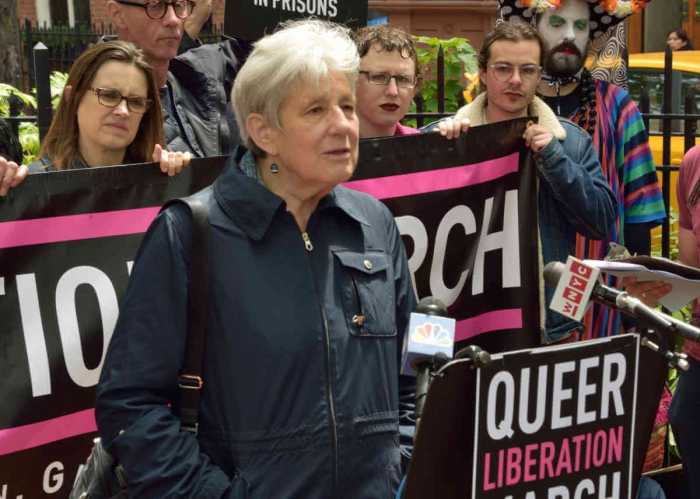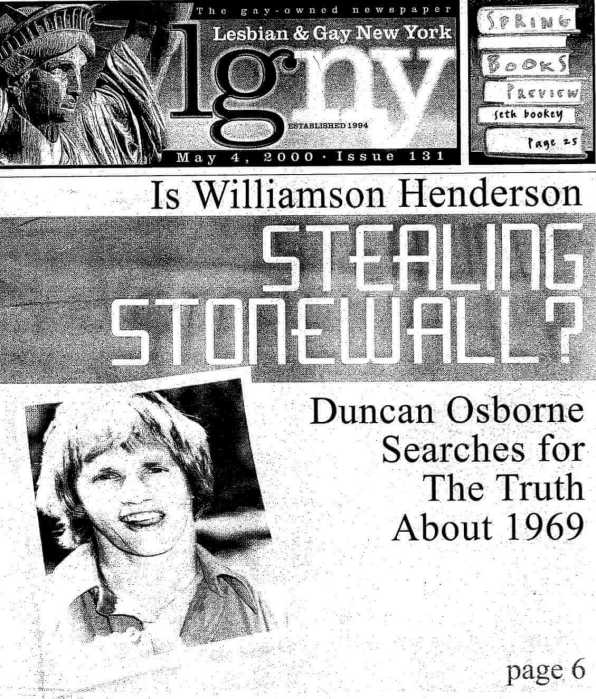Veteran lesbian, feminist, and civil rights activist Susan Silverman, whose work bettering the lives of LGBTQ people spanned five decades, died on August 24 at the age of 73.
Transgender activist Elizabeth Coffey Williams and Philadelphia Gay News publisher Mark Segal, who were Silverman’s neighbors at John C. Anderson Apartments, told Gay City News she was ill for many years and died at Thomas Jefferson University Hospital in Philadelphia.
The apartment complex was developed by Segal, who engaged in activism alongside Silverman in the Gay Liberation Front. Silverman lived in New York until 2014, at which point she became one of the apartment’s original residents, Segal told Gay City News.
“She loved New York,” said Segal, 71. “She remained a pioneer even when she was a senior.”
A daughter of union workers, Silverman was born at the Brooklyn Jewish Women’s Hospital on February 24, 1949. Silverman’s parents’ and brother’s names were not provided for this obituary, and Segal said she was not close to her family.
“There were no relatives at the memorial service,” he said.
At the age of 19, Silverman was politicized by the Civil Rights and anti-war movements when the Stonewall Riots broke out for six days after police raided the Greenwich Village bar in New York in 1969. She then came out.
“I came out in a flurry of political activity with incredible support. It was an exciting, electric time,” Silverman told the Philadelphia Gay News about coming out at the age of 19 and the beginnings of her activism. “My generation really was committed to making change.”
Silverman, the Philadelphia Gay News reported, was living on the Lower East Side in Manhattan at the time. She was working on the steering committee for a lecture hall and meeting space, Alternate U. She was a member of the New York Radical Women, Gay Youth, and the Lavender Menace. She played a role in organizing the Gay Liberation Front and the Radicalesbians.
Silverman went on to earn her MSW from Fordham University and became a social worker focused on child abuse and bereavement issues as she continued her activism. She retired in 2010.
Flavia Rando Ph.D., coordinator of Lesbian Herstory Archives in New York, mourned Silverman’s death.
“I worked with Susan in the Gay Liberation Front and then in Radicalesbians and remember her as always smiling, always welcoming her sisters and brothers, [and] contributing to the incredible celebratory atmosphere that existed for us even within our political struggle and personal risk,” Rando, a veteran LGBTQ activist since 1969, wrote in a statement to Gay City News.
As a member of the New York Radical Women, Silverman was one of 200 feminists who protested the 1968 Miss America Pageant and the United States’ sexist and misogynistic attitudes toward women and beauty.
The Lavender Menace was a term coined by the National Organization for Women co-founder and “The Feminine Mystique” author Betty Friedan. Friedan excluded lesbian organizations from The First Congress to Unite Women in 1969. The following year, famous lesbian author Rita Mae Brown, Silverman, and Lois Hart donned t-shirts with the phrase “Lavender Menace” as they crashed a meeting at the Second First Congress to Unite Women and stood up and started telling stories about their lives in 1970.
The Philadelphia Gay News reported that Silverman organized the first meeting of what became the Gay Liberation Front and hosted fundraising dances at Alternate U. At the time, the Stonewall Inn and many other queer spaces were controlled by the Mafia.
Segal pointed to Silverman’s pivotal role in the Gay Liberation Front and the LGBTQ moment, describing her as someone who “helped shape LGBT identity and helped in creating LGBT community.”
“While she’d debate with you, there always was a smile on her face,” Segal recalled to the Philadelphia Gay News. “I’ll miss our chats about our shared history in those early days, and the joy of watching her tell her story to others.”
Williams called Silverman a “true icon of our community” and described her as her sister, mentor, and confidant.
“We forged a bond almost immediately that was fun, loving and abiding,” Williams, also born in New York, told Gay City News via email. “She was a hard-as-nails, bad-ass New York broad but had the biggest, warmest heart imaginable.”
Williams, who appeared as an actress in John Waters films such as “Pink Flamingos” and “Female Trouble,” said her friend was humble in her “many accomplishments.”
“She retained the rebellious spirit and organizing skills she honed in those post Stonewall days,” she added. “I will celebrate her life of love and service to our community, and I will miss her beautiful smile forever.”
The Philadelphia Gay News reported that she helped organize the Gay Liberation Front’s 40th anniversary march and she joined fellow Gay Liberation Front members in celebrating the 50th anniversary of Stonewall in 2019.
In 2019, Silverman was honored by Senator Sharif Street (D-Philadelphia) for her contributions to the LGBTQ movement.
An estimated 50 people attended a memorial for Silverman held in Philadelphia on August 29, Williams wrote. The memorial was broadcast on Zoom.
Rando said the archives hopes to devote a special collection to the documentation of Silverman’s life and activism in the future.
“We’ve lost a great spirit and light of our movement,” Segal said. “Those of us who knew her lost a friend that we dearly loved.”



































